Power posing: can striking a pose help you be more confident in interviews?
Jun 09, 2022
3 mins
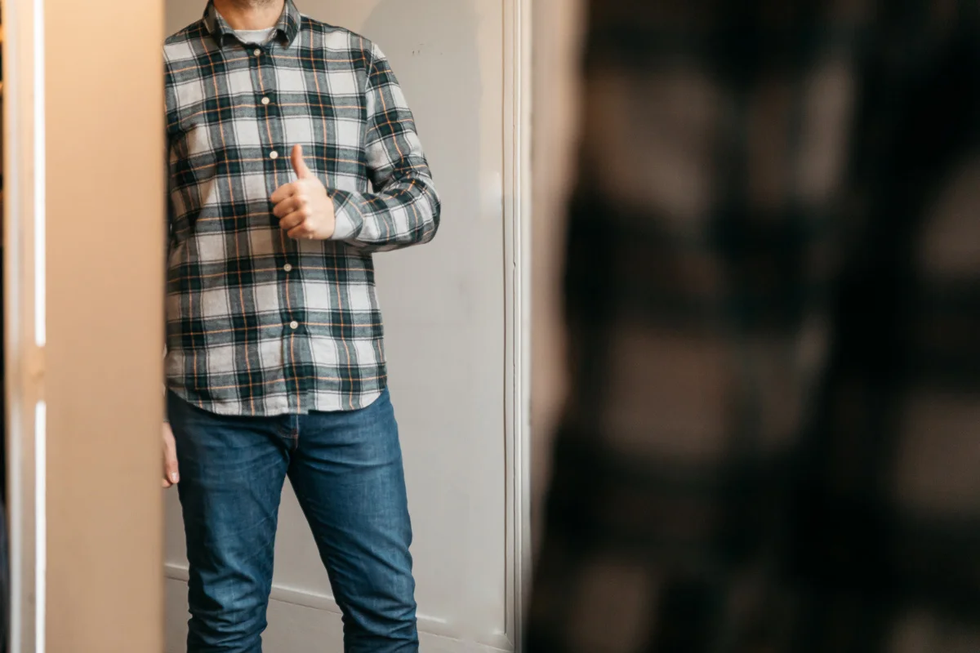

Journaliste indépendante.
In 2012, a young psychologist from Harvard University - Amy Cuddy - became an internet sensation when she revealed an astounding psychological hack to the world: certain poses could have a direct and immediate influence on our inner chemical make-up and help boost self-confidence. Within a few months, her TED talk had over 50 million views and had become the 2nd most popular TED talk in YouTube history.
Can hiding in the restroom and acting out a ‘power pose’ a few minutes before a job interview really help you perform better? Or is this just another quick win fast fail? Let’s take a closer look at this technique because, frankly, it sounds too good to be true.
Power posing: can we increase our self-confidence by playing superheroes?
During the TED talk which made her famous, Psychologist Amy Cuddy describes what she calls, ‘power poses’. These include:
- Chin lifted with your hands on your hips (“Wonder Woman” mode: activated)
- Arms open, palms and face lifted towards the sun (or the neon strip lights in the restroom, whatever works right?)
- The Victory pose, like a soccer player after scoring a goal (minus the yelling if you don’t mind)
- The ‘LBJ’ pose was inspired by former President Lyndon B. Johnson, who used to lean slightly towards the person he was talking to, resting on a desk or chair. (This one might be pretty awkward in an interview)
The psychologist explains that “power posing” has two effects: it will increase your feelings of power, but also the level of certain hormones that bolster self-confidence. Bingo! That’s it: her simple, effective theory works for almost everyone.
However, when millions of people started discreetly applying this theory before their job interviews (and other important moments in their lives), scientists questioned her research. It quickly turned into a scandal: Amy had lied.
Shame and outrage swept the scientific community; their world had been turned upside down … ok, this may be a slight exaggeration. Yet, thousands of people seem to really benefit from the positive effects of this simple practice. So what’s the secret? Is our old friend the placebo effect to blame?
Later, Cuddy published additional research which definitively showed the positive effects of these ‘power poses’ but downplayed any actual effects on hormones. Just like when your uncle boasts about the wile adventures of his youth every time you see him, Cuddy simply “exaggerated a little”. Unless you can confidently say that you’ve never “embellished your résumé, don’t judge. Nevertheless, feeling more powerful after performing a ‘power pose’ is still a major discovery and one you can take advantage of before a job interview.
Boost your self-confidence with science
Our beliefs - be they true or not - control our actions and make our lives what they are. Because self-confidence isn’t based on your actual ability to succeed at a task, but on your belief in your ability to succeed.
Cuddy isn’t the first psychologist or scientist to take an interest in self-confidence. Nor is she the first to offer a few practical tips on how to improve it. Self-confidence is not a gift from heaven that only the chosen few were granted, it’s a skill you can work on. It’s like a muscle, really. Here are a few tips for boosting your self-confidence before a job interview, taken from scientists in all fields.
Close your eyes and imagine yourself replying brilliantly to the questions your recruiter asks. It’s not exactly a secret anymore that positive visualization is a very effective tool that can quickly boost your self-confidence. In fact, your brain doesn’t really differentiate between what you do in your imagination and what you do for real. And as with any emotion, confidence breeds confidence.
Focus on your breathing to re-oxygenate your brain. Relaxation and self-belief are intrinsically linked. When you’re anxious, blood rushes from your brain putting you into “fight or flight” mode and making simple cognitive functions harder. Imagine trying to do a Sudoku just after you’ve run away screaming from a spider. It’s the same thing. Dr. Robert Wood, psychologist and author, explains that “staying present and focusing on your breath just before an interview should help to calm your nerves.” Maybe we should be reading those breathing and mindfulness magazines after all!
Encourage positive inner dialogue … and ideally, don’t wait until the night before your job interview to do it! As research published in the Personality and Social Psychology Bulletin shows, personal affirmations effectively increase self-belief. “Every time you expect not to perform well, you’re likely to tank and end up behaving just as you expected,” says the study’s author, researcher Sonia Kang.
Wear a fragrance that reminds you of a positive memory or use essential oils. Sounds crazy, we know! And yet, according to a study published in Psychology Today, our sense of smell directly affects the brain and our emotions. Smelling a fragrance or specific essential oils can help us make pleasant associations which, in turn, help us relax and find our self-confidence.
When you lack confidence, you limit your potential. Although science cannot explain what causes “power posing” to affect our self-confidence, it doesn’t really matter. Taking a few minutes of alone time to try it before meeting people is effective. Whether it actually leads to hormone changes or not, you’ll feel more confident. And, at the end of the day, isn’t that what’s most important?
Translated by Debbie Garrick
Photo: Welcome to the Jungle
Follow Welcome to the Jungle on Facebook, LinkedIn, and Instagram, and subscribe to our newsletter to get our latest articles every day!

More inspiration: Job interview survival guide
Ace your job interview with our comprehensive guide. From preparing for different recruiters to managing informal moments, our tips and techniques will help you shine.
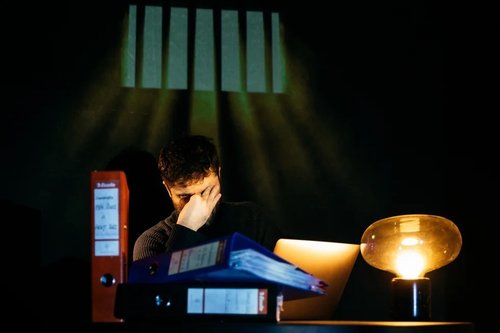
Beyond the basics: advanced strategies for researching a company before an interview
Want to show off your knowledge and impress the recruiter? Don't skip out on the in-depth researching stage of preparing for an interview!
Mar 29, 2023
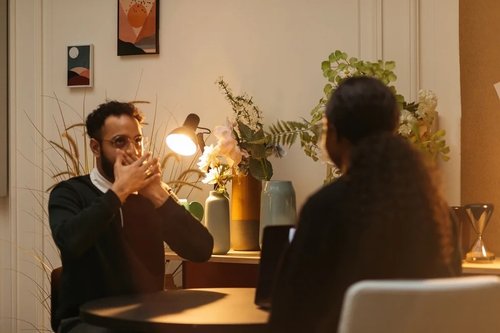
Interview faux pas: 10 mistakes you didn't know you were making
Want to ace your next job interview? Here are 10 common mistakes to avoid, according to career expert Alan Stein.
Mar 21, 2023
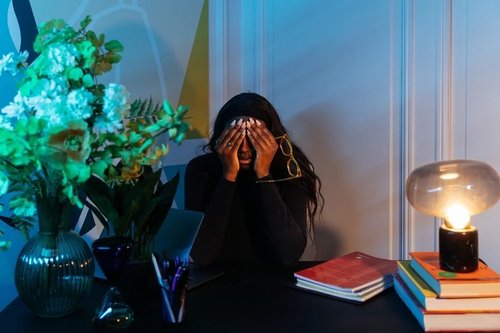
People-pleasing in an interview: how a minion mentality can derail your career
"Yep, sure, no problem, I can do that!" People pleasers, beware. Overselling yourself to the recruiter could come back to bite you...
Dec 13, 2022
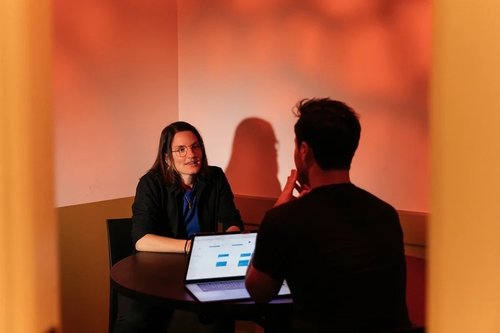
Interviewing with a friend: the pros, the cons, and how to handle it
Thanksgiving is the perfect time for catching up with loved ones, eating great food, and ... networking?
Nov 22, 2022
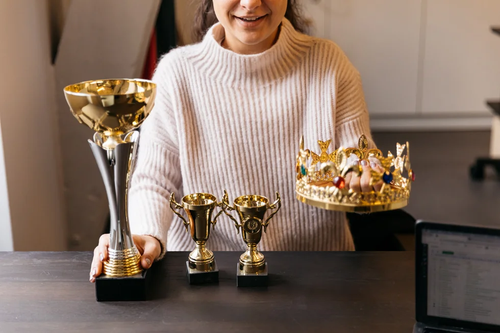
The secret art of selling yourself in an interview
Beyond convincing the recruiter your skills and experiences are relevant, you need to be able to sell YOU. A personal branding expert shares his tips.
Nov 10, 2022
The newsletter that does the job
Want to keep up with the latest articles? Twice a week you can receive stories, jobs, and tips in your inbox.

Looking for your next job?
Over 200,000 people have found a job with Welcome to the Jungle.
Explore jobs